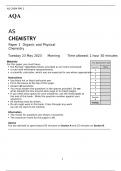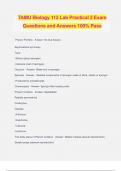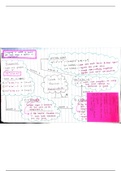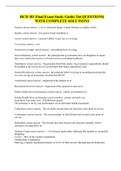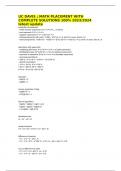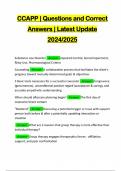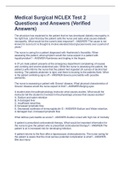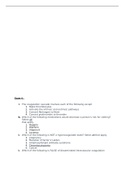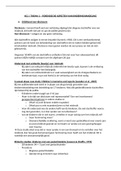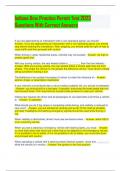Exam (elaborations)
AQA AS CHEMISTRY Paper 2 Organic and Physical Chemistry for MAY 2023
- Institution
- AQA
AQA AS CHEMISTRY Paper 2 Organic and Physical Chemistry Tuesday 23 May 2023 Morning Time allowed: 1 hour 30 minutes Materials For this paper you must have: • the Periodic Table/Data Sheet, provided as an insert (enclosed) • a ruler with millimetre measurements • a scientif...
[Show more]
